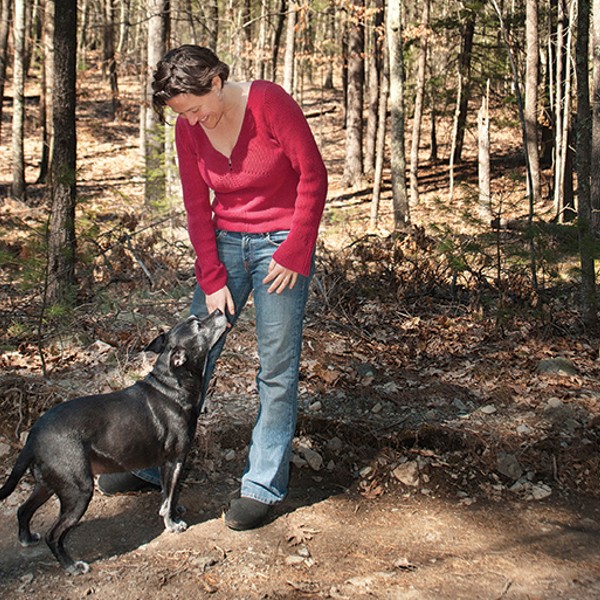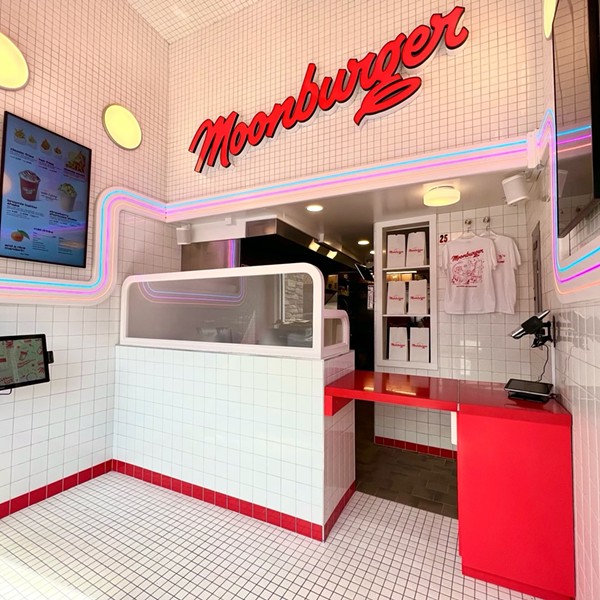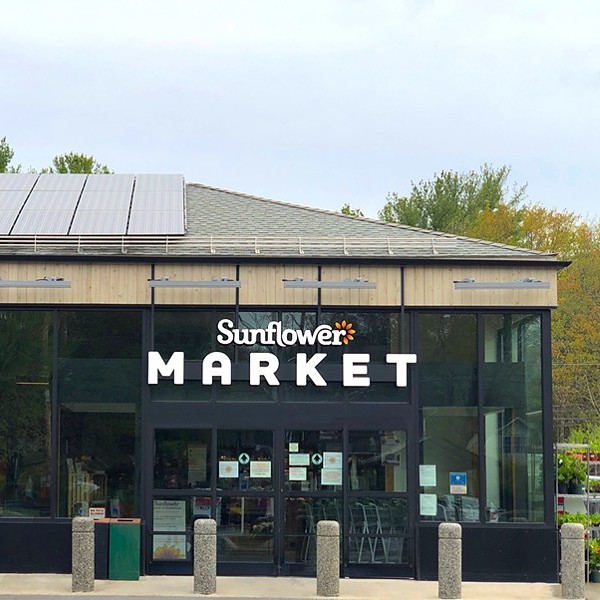Gretchen Primack bites into a Vegan Delight sandwich at Sissy's Café in uptown Kingston. "So good," she sighs in reverie.
Readers may feel the same way about Primack's book Kind (Post Traumatic Press, 2013). Poem after poem lands with that satisfied moan heard at poetry readings: Mmm, she got that said. Though many of Kind's 40 poems explore animal rights, there's nothing tendentious about them, no preaching to choirs. These are kick-ass-good poems with a conscience.
"It's about the dynamic between humans and other animals in our time, and it's about what it's like to be the kind of person who cares about that," explains Primack, who's clear-eyed and forthright, frequently flashing a warm, gap-toothed smile. She speaks with the measured clarity of an experienced teacher—unless there's a dog within earshot. When a dog walker swings the door open to greet a friend, Primack's voice shoots up an octave, melting in unbridled coos. She and husband Gus Mueller share their Hurley home with two rescued pit mixes and five cats.
Primack's passion for animals led Woodstock Farm Animal Sanctuary founder Jenny Brown to choose her to co-author The Lucky Ones: My Passionate Fight for Farm Animals (Penguin, 2012). "I was flattered and delighted," the poet recalls. "And nervous, because I'd never written book-length prose."
The Lucky Ones was a hit, but Primack is glad to return to her roots. "My natural urge of expression manifests in poetry. I love sloughing off the chaff, bringing writing to its most crystalline." And though she loves reading fiction, "I'm not very interested in writing stories. I like to write moments, ideas, characters. I don't want to string those all together into a narrative."
Primack's poems begin with a line that comes into her head and sticks. "I'm usually alone and I'm often walking, and I'll click into a zone. It's a word zone, where ideas meet syntax." She writes many drafts, paring down to essentials. Her poems have appeared in the Paris Review, Ploughshares, Prairie Schooner, and other prestigious journals. Her chapbook The Slow Creaking of Planets was published by Finishing Line in 2007; a new collection, Doris' Red Spaces, is forthcoming from Mayapple Press in 2014.
Kind launched at a Manhattan book party hosted by yogini/animal activist Sharon Gannon at Jivamukti Center. Published by Woodstockers Dayl Wise and Alison Koffler, it features a cover painting and drawings by Susan Siegel, whose work Primack first saw at the Hudson Valley Seed Library art show. "It was a beautiful rococo goat with a hat made of peas. I stood in front of that painting and just adored it," says Primack. "Her work plays with the whole idea of kind, of what kind we are."
Primack grew up in Silver Spring, Maryland. Her father was a doctor; her mother an attorney for nonprofit groups. Though they weren't religious—"Jewishness was more of a cultural phenomenon in our house"—they kept what she calls "semikosher."
"You're supposed to wait six hours between milk and meat? We'd wait an hour," she explains. "And we'd eat in non-kosher restaurants. The biggest way we were kosher—I've never had shellfish or anything from a pig."
She stopped eating other meats at 13, after reading a story in "a geeky summer class at Dickinson College" in which a lamb's throat is cut, soaking a wall with blood. Primack found the image disturbing, prompting one of her classmates to ask, "Well, are you a vegetarian?" She wasn't. "I'd hardly heard the word 'vegetarian.' But it got me thinking: If I was disturbed by that image, I should not be contributing to that image. A month later, I looked at my plate, and instead of chicken, I saw a chicken. I put my fork down and told my parents I'd never eat meat again."
Her parents didn't object—"probably because they didn't think I'd stick to it. I had no willpower," Primack says, laughing. "But on this issue I did."
This wasn't the end of her food education. "I continued to joyfully eat cheese and eggs, having no idea there were ethical concerns with those foods. They were the staple of my vegetarian diet." (To her chagrin, Primack dislikes such meatless-meal staples as eggplant, zucchini, and avocado—"If I can be vegan, anybody can be vegan.")
She attended Oberlin College, where she majored in English, anthropology, and Jewish studies. (She also met her future husband, though they fell out of touch for a decade years before reuniting in Brooklyn.) Primack worked at a farm and wilderness preserve outside Santa Cruz, trained as a union organizer in DC, and moved to Milwaukee, where she fell in love with dog-shelter worker named Barbara. "Ever since college I've known that I like the ladies as well as the gentlemen. That orientation didn't change when I lived with Barbara, and it didn't change when I married Gus. It's hard for some gay women to understand and it's hard for some straight men to understand, but to me it's very simple: I fall in love with the person, who can be male or female."


















